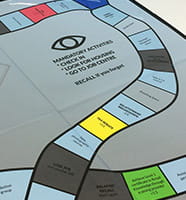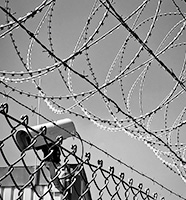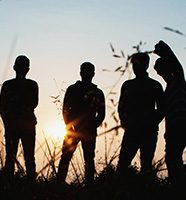Centre for the Study of Crime, Criminalisation and Social Exclusion
An interdisciplinary centre producing world-leading research.
CCSE members are actively researching the interaction of politics, evidence and policy as well as the relationships between drugs, intoxication and society. Key issues here include: the ways in which patterns of drug use/supply are changing in the UK at present, the best ways in which policymakers might respond to such changes, and the justice implications of drug policy and practice. CCSE Drug Researchers recognise that criminalisation policy, (definitions of) problematic drug use and drug sales are connected to social exclusion and other social problems and respond with critical research agendas, as demonstrated by their publications and research interests.
Research and expertise
The research conducted by CCSE is critical and wide-ranging and includes: prisons; deaths in custody; sentencing; drugs policy; social divisions; social policy and austerity; youth justice; environmental politics; sexual violence; child sexual abuse; third sector and voluntary organisations; counter-terrorism strategies; victims and victimisation; policing and public order; military identities; masculinity and social policy; desistance; health care and critical perspectives on alternatives to custody. This research is designed to impact on the policy, political and popular debates in their respective areas of expertise.
Research Excellence Framework
Producing internationally excellent and world-leading research.
In the latest research assessment (Research Excellence Framework 2014), over half of the Centre’s outputs submitted to the Social Work and Social Policy Unit of Assessment were rated internationally excellent, whilst a further proportion were judged world leading.
The Centre’s impact case studies on 'Conceptualising, Mapping and Responding to Death and Injury at Work' and 'Interrogating Penal Power and Developing Policy Responses to Deaths in Custody' were also considered to be internationally excellent and in some respects world leading.
Our recent projects
Collaborations and partnerships
The CCSE is committed to working collaboratively with outside organisations and activist groups at local, national and international levels. These include but are not restricted to: INQUEST, the National Association for Youth Justice, the Howard League for Penal Reform, The Rape and Sexual Abuse Centre (RASA), Merseyside, News from Nowhere, The Homeless Period and Veterans in Practice. Furthermore, the Centre’s international links include the European Group for the Study of Deviance and Social Control, the European Union, the Anti-Security Collective, Tribhuvan University, Nepal, the Angola 3 Campaign and the International Indigenous Youth Council.
Discover more about the Centre for the Study of Crime, Criminalisation and Social Exclusion from the CCSE blog.
















